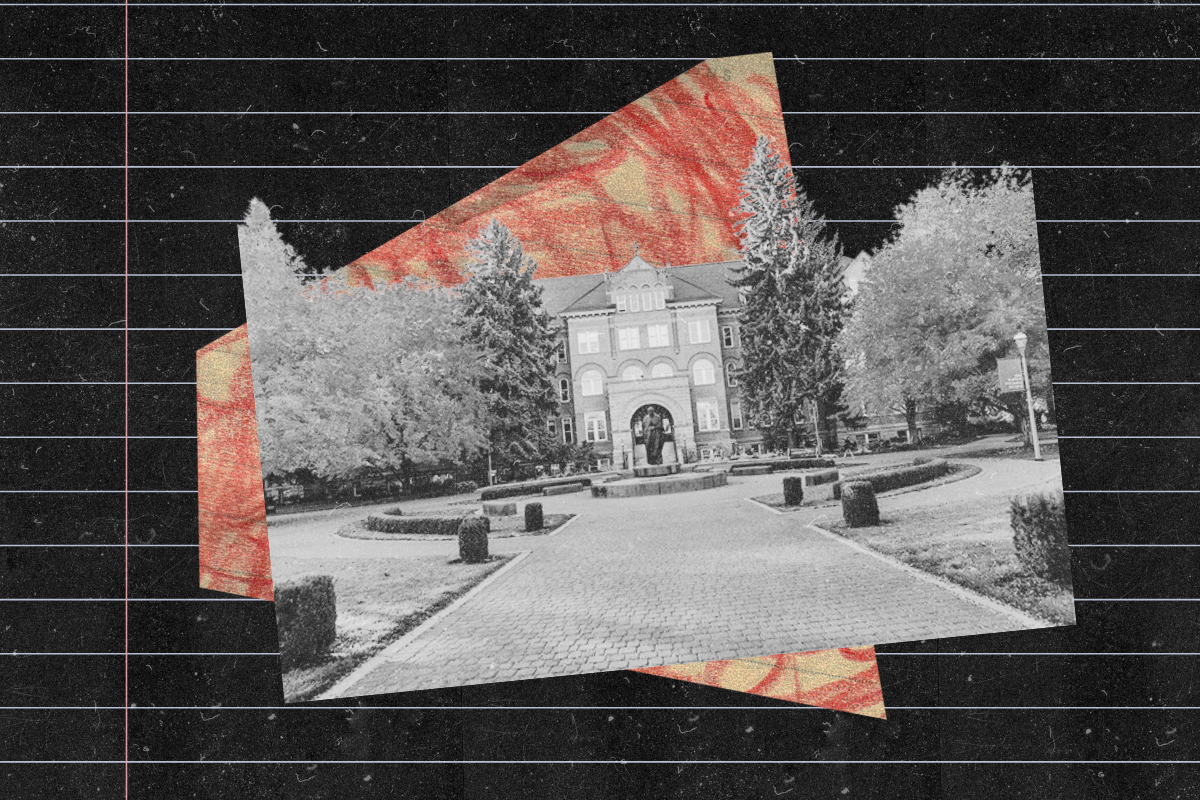This essay is part of Hey Alma’s series on what it’s like to be a Jewish college student in response to October 7, the 2024 Israel-Hamas war and campus protests. Click here to read the full range of voices.
Being a Jewish student on a college campus right now is devastation, is joy, is a slow burning frustration that lives in your chest and will not leave.
I am devastated to see the unwillingness of my peers to engage in meaningful conversations because it is far more cathartic to scream. Shortly after October 7, a friend texted me to say we couldn’t be on speaking terms anymore; I watched as she became one of the most vocal leaders of the anti-Israel demonstrations on campus. I worked alongside Jewish, Palestinian and Muslim faculty to create an educational series about the conflict and the loudest student protestors either didn’t show up to the events or only did to dissuade people from engaging because of perceived “biases” due to the inclusion of Jewish perspectives.
I experience deep joy with my Jewish friends, knowing we share a culture that is ancient and sacred and beautiful. We hosted a Jewish culture club festival in April and hundreds of Gonzaga community members came and supported us, danced the hora with us, listened to our music and excitedly ate our traditional foods. Our small community gathered and made golems and evil eye bracelets when we felt least safe on campus and cried with laughter playing games late into the night during a Shabbat retreat.
And I am frustrated by so many voices claiming to represent us without ever speaking to us. Prior to October 7, the Jewish community was totally invisible on campus, and now some false idea of our community is hypervisible. At the demonstration on our campus last week, the organizers took advantage of the voice of one Jewish student and tokenized him to speak for all of ours so that even as their words and actions invoked antisemitism, they could use his presence as their shield.
Most of the time, I stay silent. I try to hear everyone’s perspective and when the space feels safe enough (a rarer and rarer experience) I share my perspective too — a perspective that is much closer to this conflict than most of those around me. I try to build bridges across communities so that we can grow together, but the path of genuine connection and community does not draw the same appeal as those of performative protests.
I am not a good Jew nor am I a bad one. I am Zionist, but not in the way everyone around me seems to be defining it. I am a Zionist in the sense that I want the Jewish people not only to live, but to not have to face the constant metaphorical death of assimilation. I am also a student committed to social justice who works with the many cultural groups on our campus. I believe in the liberation and freedom of the Palestinian people. And, if they were not dripping with antisemitism and violence, I too would be a part of movements advocating for the rights of Palestinian civilians and peace. I am horrified by the actions of the Netanyahu government and pray every day for the end of the extremism in the region that is perpetuating violence and death.
It feels as though everyone involved is devolving into extremism and violence. But violence only begets violence and I refuse to participate in that self-perpetuating system. I refuse to give up my Jewish joy or the hope that we will come together for an enduring peace.
— Gabriela Marquis from Spokane, WA; Gonzaga University, Class of 2024



